Finding the perfect clock for your home in a thrift store or being given a family heirloom can be exciting. However, age and wear can take their toll on clocks, and you might be left with a clock that doesn't work. So if you're trying to fix an overwound clock, you've come to the right place. We've researched extensively some methods you can try to fix your clock.
An overwound, or broken clock, is often caused by the clock's mainspring. There are some methods you can try to fix an overwound clock:
- Clean the clock
- Lubricate the mechanism
- Replace the springs
- Find a professional
We've given you some basic methods to fix an overwound clock, but keep reading as we go into detail about how to do each one. Additionally, we'll talk about what exactly is meant when a clock is overwound. We'll also answer some other questions you might have about your clock.
![A clock maker using an eye loupe, working on an antique clock. How To Fix An Overwound Clock [4 Methods]](https://homedecorbliss.com/wp-content/uploads/2021/02/A-clock-maker-using-an-eye-loupe-working-on-an-antique-clock.-How-To-Fix-An-Overwound-Clock-4-Methods.png)
Fixing An Overwound Clock
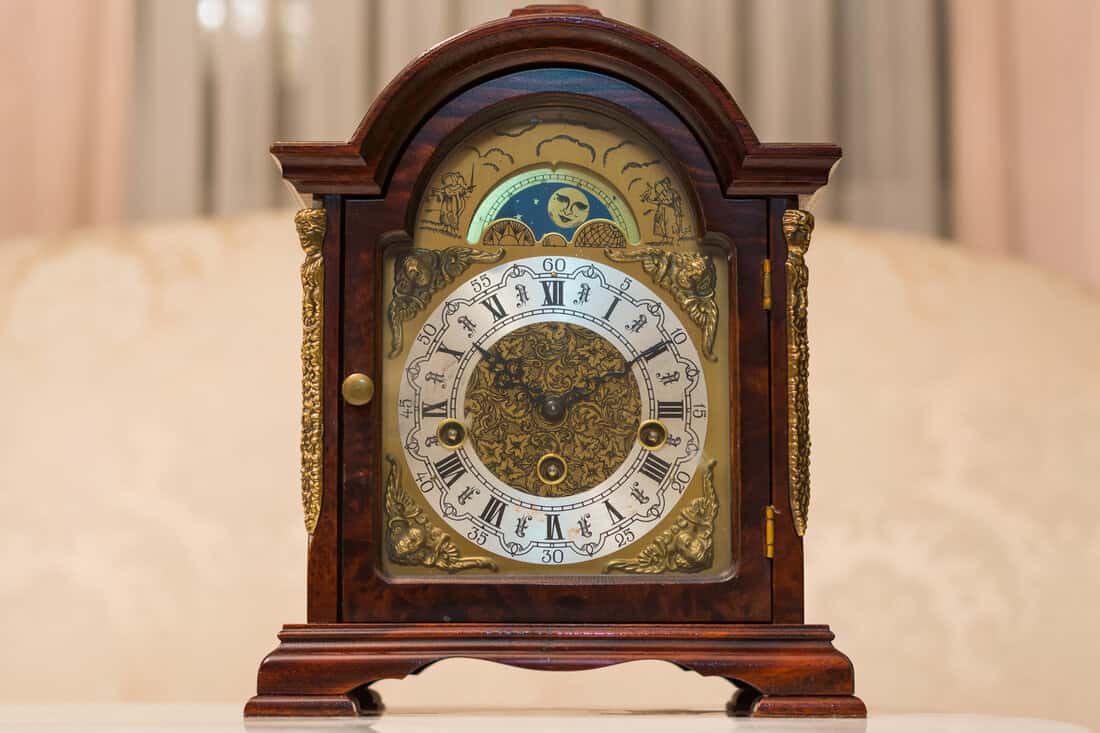
We sometimes add affiliate links and content that was curated and created by our team with the help of advanced ai tools to help showcase the best design styles.
It can be frustrating when your clock stops working, but it doesn't mean you need to doom it to the trash can. There are some things you can try to get it working again, and almost all clocks can be repaired to working order. To know how to fix an overwound clock, you need to know what it means when a clock is overwound.
What Does It Mean When A Clock Is Overwound?
When you hear the phrase "overwound clock," you probably think that it applies to a specific issue with the clock. However, this is not the case. You can't overwind a clock. When a clock is overwound, this means it is not working and could be applied to any number of issues with the clock. There a few things you can try to get it working again.
1. Clean The Clock
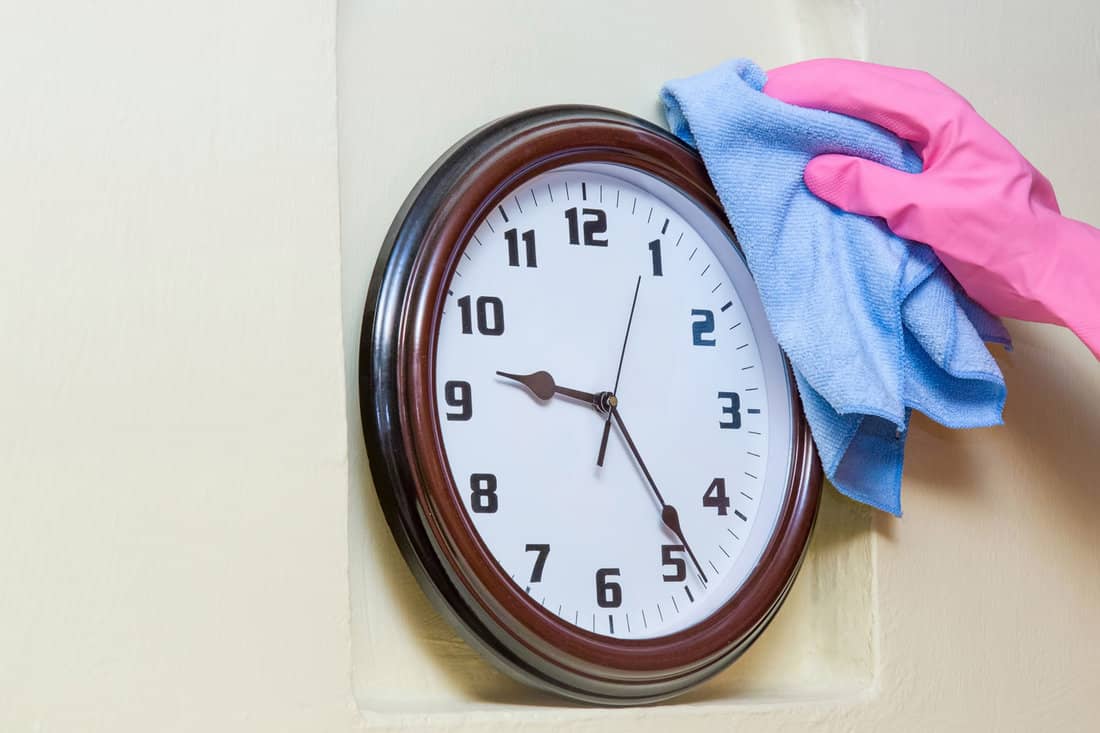
Sometimes cleaning your clock will get it working again. Unfortunately, the best way to clean the clock is by taking it apart. If this seems like a daunting task and you're worried about putting it back together, you can always take it to be professionally cleaned. If you feel confident enough to try and take it apart yourself, we suggest taking photos as you go, so you can remember where each part goes.
First, you should remove the clock movement from the clock. The springs cannot get wet, so next, you should remove the plates. If the springs get wet, they could rust and cause you even more problems later on.
If removing the plates from the movement seems too difficult, you can try to do a simple cleaning by submerging the top part of the movement into soapy water. Just be careful not to submerge the spring barrel.
If you remove the plates, you can wash the other parts of the clock with warm soapy water or a clock cleaning solution. Reassemble your clock to see if cleaning did the job.
Click here to see ROBENO Clock Parts Cleaning Solution on Amazon.
2. Lubricate The Mechanism
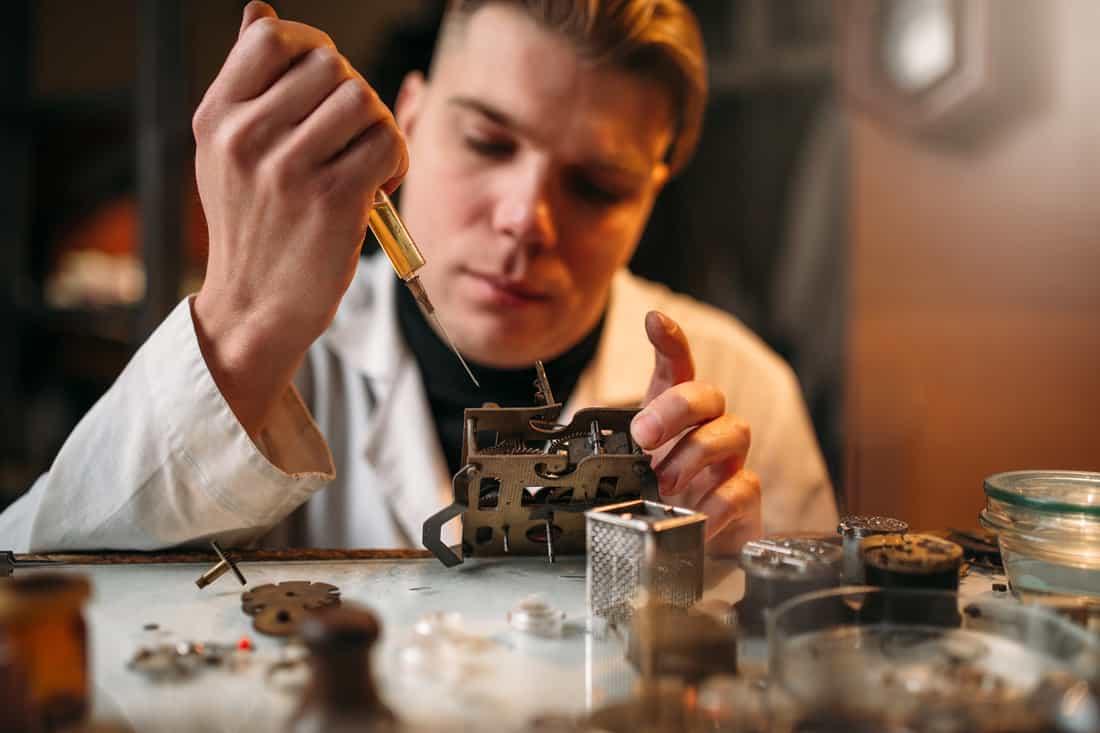
Like cars, all mechanical clocks need regular oiling. Clock oiling should be done every two years. This will help keep it in good shape and out of the repair shop.
The easiest way to oil a clock is to remove the movement. When handling your clock's movement, you should wear latex gloves to help prevent the oils on your hand from damaging the brass.
Apply a single drop of clock oil to each oil sink using a clock oiling pen.
Click here to see Pen Oiler on Amazon.
What kind of oil should you use on a clock?
Though you might be tempted to use WD40 on your clock because it's so great to use in most other places in your home, WD40 is not recommended for clocks. So what kind of oil should you use?
The safest option is to buy synthetic clock oil specially designed for clocks. It'll help protect your clock from wear and tear and keep it running smoothly. Some synthetic clock oils even come with an applicator tip, so you don't have to worry about using a clock oiling pen.
Click here to see Liberty Oil Synthetic Clock Oil On Amazon.
3. Replace The Springs
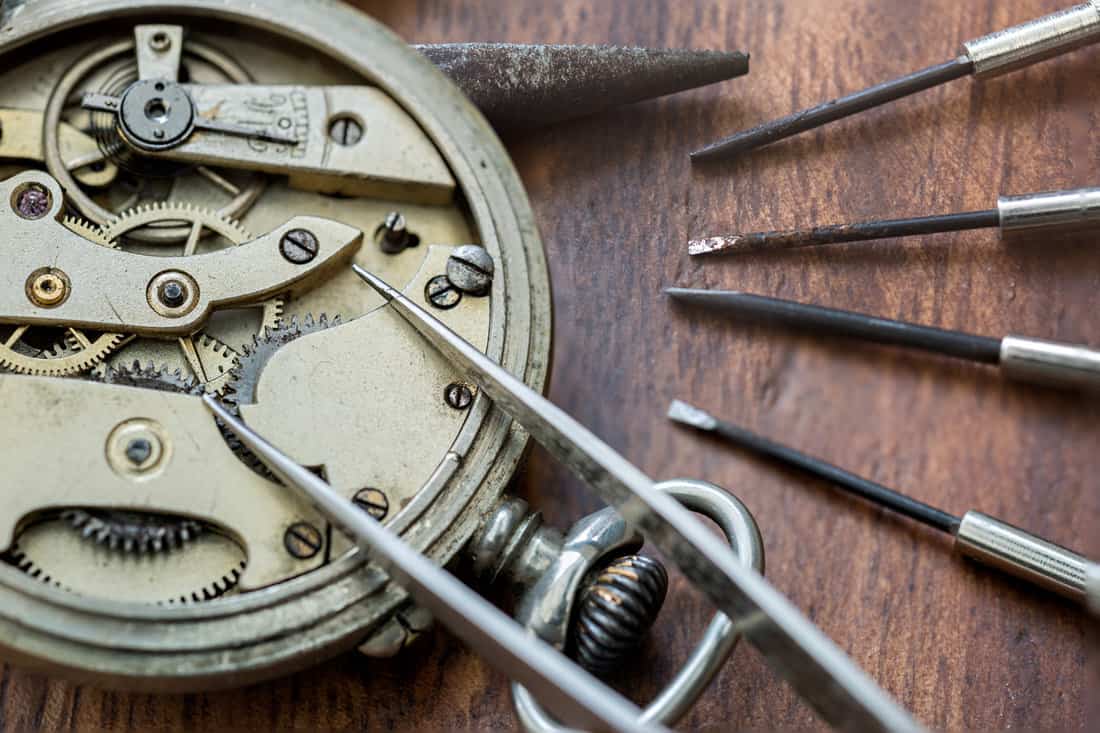
If cleaning and oiling your clock doesn't get it back into action, you might need to replace the springs. Fortunately, replacing clock springs is a relatively simple task, and many clock owners should be able to do it themselves with some guidance. Though if you'd rather leave it to the experts, clock repair professionals should be able to do this for you. Some clock repair services will offer to install new springs with a cleaning and oiling service.
4. Find A Professional
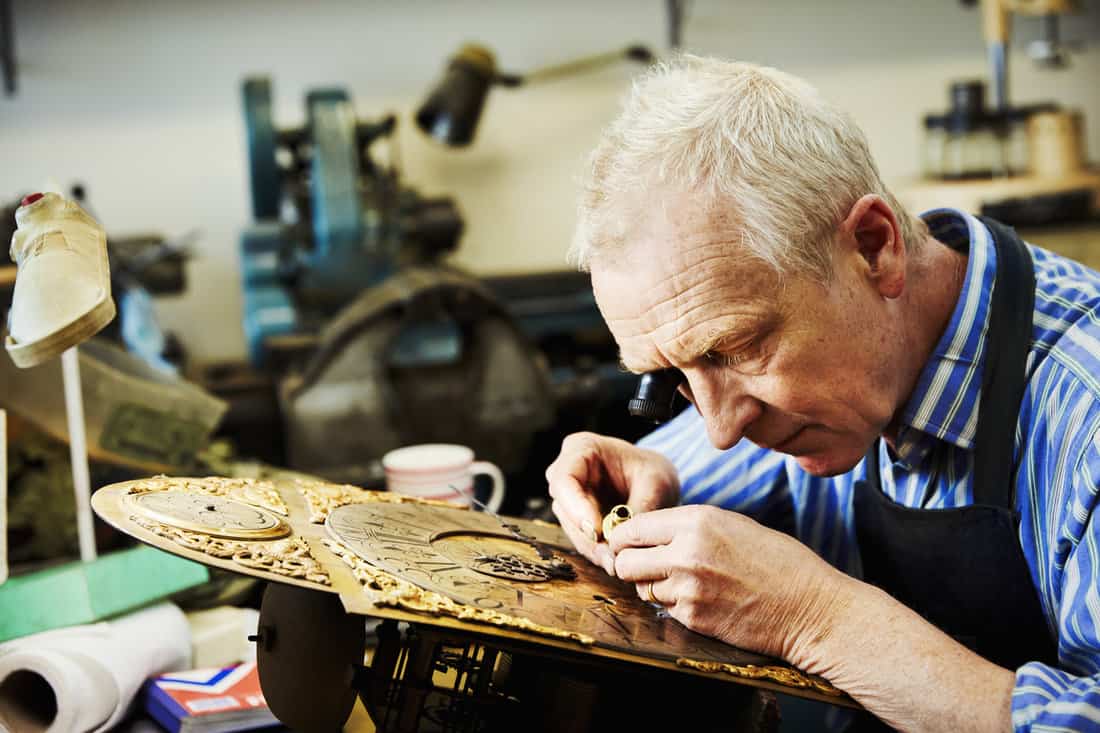
If you've tried the previous methods, and your clock still isn't working, there may be a more complicated issue with the clock. At this point, it may be time to contact a professional.
A professional should be able to diagnose the problem with your clock and offer a solution. Fortunately, most clocks are not irreparable, and with the right fix, they should be able to work again.
How Often Should You Wind A Clock?
Once you get your clock working, you need to wind your clock regularly. This will help prevent it from stopping. Most clocks are 8-day clocks. This means they will last eight days before needing to be wound again.
The best thing to do is wind your clock every seven days. Choose a single day of the week and assign yourself clock winding duty on this day each week. Winding it every seven days means you will have wound the clock before it has time to stop.
Why Does A Clock Keep Stopping At The Same Time?
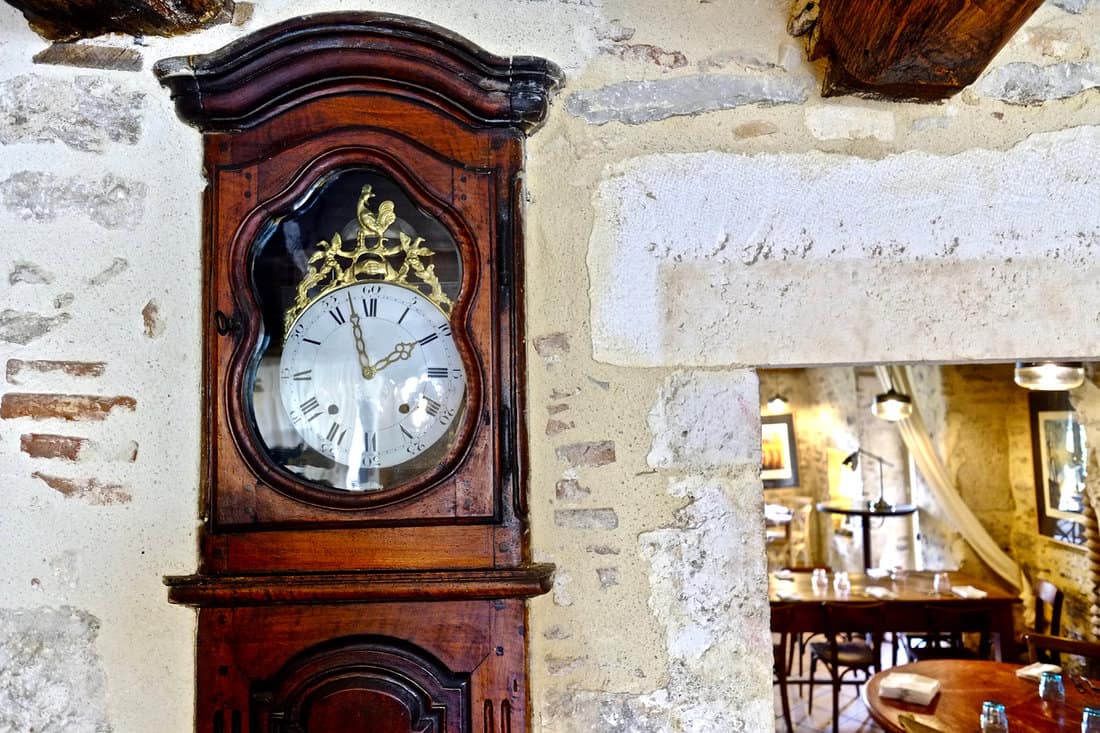
Though a clock stopping at the same time is rare, it can happen. While some people swear it has some paranormal meaning, it's likely not a ghost playing tricks on you. If your clock keeps stopping at the same time, it could be for a couple of reasons.
The simplest problem to fix is if the clock stops at the same time because of the hands. Sometimes the hands will cross and cause a bind. One of the hands might be bent at an angle, causing it to catch at that exact moment it crosses. Check that the hands aren't touching when they meet.
If the clock stops at the same time every twelve hours, you should check for a wheel that turns once every twelve hours. There may be a problem with the wheel that is causing the clock to stop.
As we mentioned earlier, some professionals specialize in fixing clocks, so it may be best to check if the problem isn't apparent. They will know the parts well enough to identify the problem.
Is It Okay To Turn A Clock Backwards?
Turning a clock backward or counterclockwise is ok to do with some clocks. However, most antique clocks should not be turned backward. Turning the hands backward on a clock that isn't designed to do so can cause a part to break and will result in a costly repair.
If you have the owner's manual for your clock, it should say whether it's safe to turn your clock backward or not. Without the owner's manual, it's best to always err on the side of caution and turn your clock clockwise to be safe.
Final Thoughts
If your clock is overwound, or in other terms, it just doesn't work, we've given you a few methods you can try to fix it. If the clock still doesn't work, you should take it to a professional before throwing it away. Most clocks can be fixed one way or another.
If you decide to take your clock to a professional, check out our other blog post, How Much Does It Cost To Service A Grandfather Clock?, for a general idea of how much it will cost to service your grandfather clock! If you need suggestions on how to move your clock, take a look at How To Move A Grandfather Clock.
![grandfather clock hanging on a wall in a dark room. How To Fix An Overwound Clock [4 Methods]](https://homedecorbliss.com/wp-content/uploads/2021/02/grandfather-clock-hanging-on-a-wall-in-a-dark-room.-How-To-Fix-An-Overwound-Clock-4-Methods.png)



